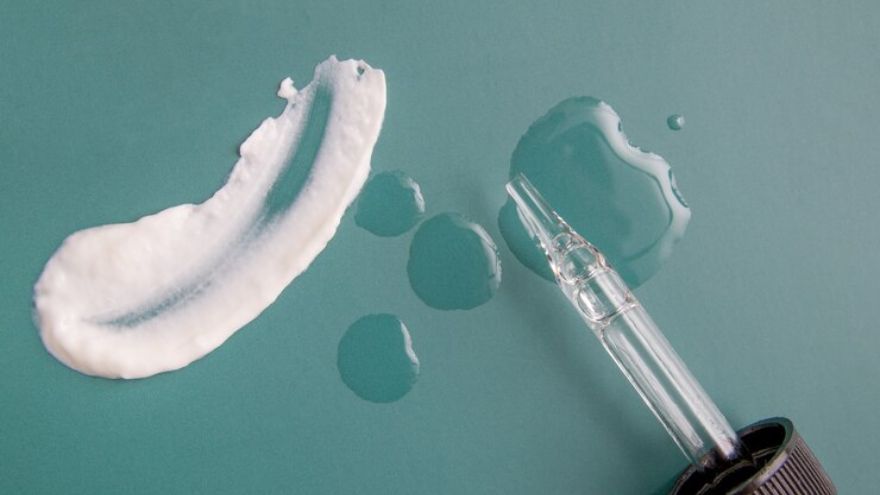
Hair loss is a common concern for both men and women, affecting millions worldwide. One of the key factors responsible for hair loss, especially in men, is a hormone called Dihydrotestosterone (DHT). This hormone is derived from testosterone and plays a major role in male pattern baldness, known as androgenetic alopecia. Fortunately, there are natural ways to combat DHT, and one effective method is through diet. Certain foods act as DHT blockers, helping reduce hair thinning and promote hair growth. In this blog, we'll explore the role of DHT in hair loss, and how consuming specific DHT blocker foods can support healthier, thicker hair.
DHT and Its Role in Hair Loss
Before jumping into DHT blocker foods, it's important to understand what DHT is and how it affects hair growth. Dihydrotestosterone is a hormone that, while important for certain functions like the development of male characteristics, can have a negative impact on hair follicles.
When testosterone is converted into DHT by an enzyme called 5-alpha-reductase, DHT binds to receptors in the hair follicles, causing them to shrink. This process is known as miniaturization, and it can lead to shorter hair growth cycles, thinner hair, and eventually, hair loss. While this is more common in men due to higher testosterone levels, women can also experience DHT-related hair loss, particularly after menopause when hormone levels fluctuate.
The Importance of DHT Blockers
DHT blockers work by inhibiting the activity of the 5-alpha-reductase enzyme, reducing the production of DHT. There are both medical treatments, such as finasteride, and natural remedies that can help block DHT. Many people prefer natural DHT blockers because they typically come with fewer side effects and offer additional health benefits. Some foods contain natural compounds that can block DHT production or reduce its effects on the hair follicles.
Now, let’s explore some of the most effective DHT blocker foods that you can incorporate into your diet.
1. Pumpkin Seeds
Pumpkin seeds are rich in zinc, which is one of the most powerful natural DHT blockers. Zinc plays a crucial role in regulating the production of testosterone and its conversion to DHT. A deficiency in zinc has been linked to hair loss, making it an important mineral for maintaining hair health. Pumpkin seeds also contain phytosterols, which help inhibit the activity of the 5-alpha-reductase enzyme, reducing DHT production.
2. Green Tea
Green tea is known for its antioxidant properties, but it’s also an effective DHT blocker. Green tea contains epigallocatechin gallate (EGCG), a polyphenol that has been shown to inhibit the production of DHT. EGCG helps prevent hair loss and encourages hair growth by stimulating the hair follicles.
3. Saw Palmetto
Saw palmetto is a herbal remedy that has been traditionally used to support prostate health, but it also serves as a natural DHT blocker. Studies have shown that saw palmetto can inhibit the 5-alpha-reductase enzyme, thus preventing the conversion of testosterone into DHT. It is widely used in both supplements and topical hair treatments to reduce hair thinning and promote hair regrowth.
4. Tomatoes
Tomatoes are high in lycopene, a powerful antioxidant that helps lower DHT levels in the body. Lycopene inhibits the enzyme that converts testosterone into DHT, making it an effective DHT blocker. In addition to its benefits for hair health, lycopene is also known for supporting heart health and reducing the risk of certain cancers.
5. Avocados
Avocados are not only delicious but also packed with healthy fats and nutrients that support hair health. They are rich in beta-sitosterol, a plant compound that helps block DHT production. Beta-sitosterol has been shown to inhibit the activity of the 5-alpha-reductase enzyme, reducing DHT levels and promoting hair growth.
6. Nuts
Nuts, particularly almonds and walnuts, are excellent sources of biotin, a B vitamin that is essential for hair growth. In addition, they contain high levels of zinc and healthy fats, both of which play a role in blocking DHT. The omega-3 fatty acids in walnuts, in particular, are known to support scalp health and reduce inflammation, which can contribute to hair loss.
7. Spinach
Spinach is a nutrient powerhouse, loaded with vitamins, minerals, and antioxidants that support hair health. It contains magnesium, iron, and vitamins B2 and B6, which help reduce DHT levels. Spinach is also rich in folate, a vitamin that promotes healthy hair follicles and encourages hair growth.
8. Soybeans
Soybeans contain compounds called isoflavones, which can help reduce DHT levels by inhibiting the action of the 5-alpha-reductase enzyme. Isoflavones have been shown to have a positive effect on hair growth by blocking DHT production and promoting the health of hair follicles.
Conclusion
While genetics and hormones play a significant role in hair loss, making dietary changes can help slow the process and promote healthier hair. Incorporating DHT blocker foods into your daily routine can be a natural and effective way to reduce hair thinning and support hair growth. Foods like pumpkin seeds, green tea, saw palmetto, tomatoes, and avocados not only help block DHT but also provide a wealth of other health benefits.
A balanced diet rich in these DHT blocker foods, combined with proper hair care and lifestyle choices, can help you maintain a healthy head of hair and boost overall well-being.
Frequently Asked Questions
Q. Can women benefit from DHT blocker foods?
Yes, women can also benefit from DHT blocker foods. Although DHT-related hair loss is more common in men, women can experience it as well, particularly due to hormonal changes during menopause. Incorporating DHT-blocking foods can help prevent hair thinning and support healthy hair growth in women.
Q. How long does it take for DHT blocker foods to show results?
The results from consuming DHT blocker foods may take several months to become noticeable. Hair growth is a slow process, and it typically takes 3-6 months of consistent dietary changes to see improvements in hair thickness and reduced shedding. It’s important to maintain a healthy, balanced diet and be patient as your body adapts.
Q. Can DHT blocker foods completely stop hair loss?
DHT blocker foods can help slow down hair loss and promote healthier hair growth, but they may not completely stop hair loss, especially if it's caused by genetic factors. Combining a DHT-blocking diet with proper hair care, lifestyle changes, and possibly other treatments like topical solutions or medications may provide the best results.
Q. Is there any difference between DHT blocker foods and DHT blocker products like shampoos or pills?
DHT blocker foods work internally by providing the body with nutrients that reduce DHT production and improve hair health. Shampoos or topical treatments, on the other hand, work externally by targeting the scalp directly. Both can be effective, but combining them may provide better results, depending on the severity of your hair loss.
.jpg)


